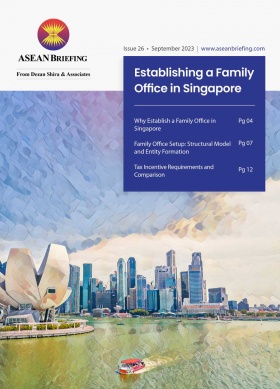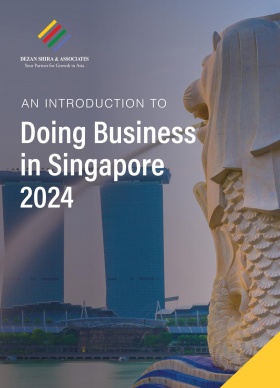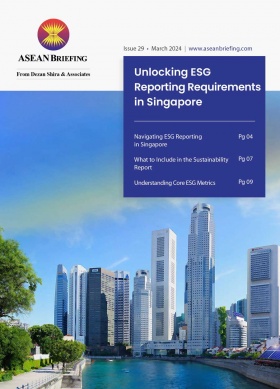Singapore and Germany Strengthen Relations: What the Strategic Partnership Means
In November 2024, Singapore and Germany elevated their bilateral relationship to a Strategic Partnership, marking a significant milestone in their longstanding ties. As both nations approach the 60th anniversary of diplomatic relations in 2025, this partnership represents a shared commitment to navigating the complexities of a rapidly evolving global landscape.
Since establishing official ties in 1965, Singapore and Germany have built a relationship founded on shared values such as multilateralism, free trade, and respect for international law. Germany is Singapore’s largest trading partner in the European Union, with bilateral trade in goods totaling approximately S$24.29 billion (US$17.8 billion) in 2023.
The Strategic Partnership aims to deepen cooperation in critical sectors, ensuring mutual growth and stability in the face of global challenges. This elevation not only highlights their shared interests but also underscores their commitment to addressing pressing issues such as climate change, security, and technological advancement.
The overarching aim of the partnership is to create a framework for closer collaboration that strengthens existing ties while fostering innovation and resilience. It focuses on areas of critical importance such as defense, trade, sustainability, research, and people-to-people connections. This comprehensive partnership reflects their shared vision of promoting a rules-based international order and addressing the challenges of the 21st century.
Core pillars of the Strategic Partnership
Political, defense, cyber security, and intelligence cooperation
Political and defense collaboration is a cornerstone of the Strategic Partnership. High-level dialogues between political leaders from both nations are expected to align positions on pressing regional and global issues, fostering a united stance on international challenges. Germany’s Indo-Pacific Guidelines and Singapore’s engagement in multilateral organizations like ASEAN create natural synergies for collaboration in maintaining peace and stability.
Military cooperation is being strengthened through joint training exercises, information-sharing, and technology partnerships. This includes enhancing interoperability between their defense forces and fostering innovation in areas like autonomous defense systems. Cybersecurity has emerged as a critical focus within this pillar, as both nations recognize the growing threat posed by cyberattacks.
Trade, investment, transport, and digitalization
The Strategic Partnership is set to deepen these ties by fostering new investment opportunities and enhancing trade flows. Singapore’s strategic location in Asia and Germany’s industrial leadership create a synergy for mutual economic benefit. Economic collaboration between Singapore and Germany has long been robust. Germany accounted for over S$13.51 billion (US$9.9 billion) of Singapore’s imports in 2023, showcasing the strength of their trade relations.
The partnership emphasizes improving logistics and transportation networks, ensuring seamless trade routes between Europe and Asia. Digitalization is another key focus area, with both nations collaborating on cutting-edge technologies such as artificial intelligence, blockchain, and digital payment systems. Germany’s expertise in Industry 4.0 and Singapore’s leadership in smart cities and fintech innovation position the two nations as pioneers of the digital economy.
Climate, green economy, and energy transition
Sustainability forms a vital part of the Strategic Partnership. Recognizing the urgency of climate change, both nations are committed to ambitious carbon neutrality targets—Germany by 2045 and Singapore by 2050. Collaborative projects are underway to explore green hydrogen as a renewable energy source and improve energy efficiency across sectors. The partnership also focuses on urban sustainability, leveraging Germany’s expertise in renewable energy and Singapore’s success in creating smart urban solutions. Joint initiatives aim to reduce carbon emissions, support biodiversity, and develop sustainable infrastructure that can serve as models for other nations.
In 2023, Singapore committed up to S$500 million (US$367 million) in funding to support decarbonization efforts in Asia, with Germany emerging as a key partner.
Research, science, technology, and innovation
Innovation is at the heart of the Strategic Partnership, with a focus on fostering technological advancement and scientific research. Germany and Singapore have already collaborated on numerous research projects in the past decade, spanning fields such as quantum computing, medical technology, and robotics.
The partnership aims to build on this foundation by encouraging academic exchanges and joint research ventures. For instance, Singapore’s National Research Foundation and Germany’s Fraunhofer Institutes are expected to lead initiatives in areas like renewable energy and digitalization. Additionally, both nations are committed to creating a thriving ecosystem for startups by providing funding opportunities and access to shared resources.
Multilevel cooperation for the future
This pillar emphasizes long-term collaboration that extends beyond governments to involve businesses, academia, and civil society. People-to-people exchanges are a priority, with programs designed to foster cultural understanding and shared learning. For instance, Germany’s Goethe Institute and Singapore’s National Arts Council have partnered to promote cross-cultural dialogue.
The partnership also extends to multilateral platforms, where both nations collaborate on issues like global health, migration, and geopolitical stability.
Conclusion
The elevation of Singapore and Germany’s bilateral ties to a Strategic Partnership underscores the depth and breadth of their relationship. This collaboration strengthens their positions as leaders in their respective regions and reinforces their roles as like-minded partners on the global stage. With trade exceeding S$24 billion (US$17.8 billion) and sustainability-focused initiatives gaining momentum, the Strategic Partnership sets a strong foundation for the future.
About Us
ASEAN Briefing is one of five regional publications under the Asia Briefing brand. It is supported by Dezan Shira & Associates, a pan-Asia, multi-disciplinary professional services firm that assists foreign investors throughout Asia, including through offices in Jakarta, Indonesia; Singapore; Hanoi, Ho Chi Minh City, and Da Nang in Vietnam; besides our practices in China, Hong Kong SAR, India, Italy, Germany, and USA. We also have partner firms in Malaysia, Bangladesh, the Philippines, Thailand, and Australia.
Please contact us at asean@dezshira.com or visit our website at www.dezshira.com and for a complimentary subscription to ASEAN Briefing’s content products, please click here.
- Previous Article Auditing and Compliance in Indonesia: What’s New for 2025
- Next Article Thailand and the UK’s Enhanced Trade Partnership: An Overview







